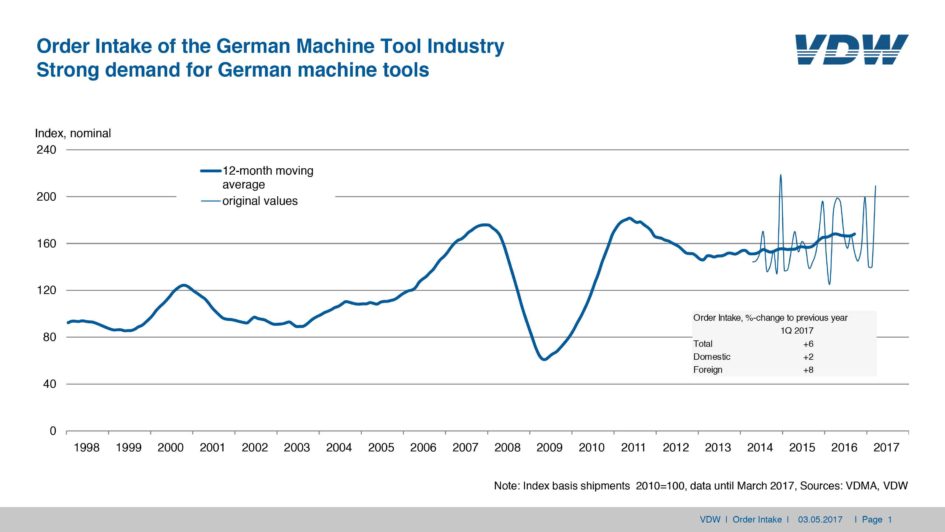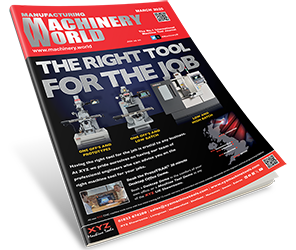Solid support from euro-zone countries – China business picking up
Frankfurt am Main, 4 May 2017. – Orders received by the German machine tool industry in the first quarter of 2017 were 6 per cent up on the previous year. Domestic demand rose by 2 per cent, while overseas orders grew by 8 per cent.
“Orders received by the German machine tool industry have therefore been stronger than expected,” said Dr. Wilfried Schäfer, Executive Director of the VDW (German Machine Tool Builders’ Association) in Frankfurt am Main, commenting on the result. International demand remains consistently high. The euro countries represent a reliable market. There was a disproportionately high increase of 23 per cent in orders for machine tools from there in the first quarter in comparison to the same period last year. “Furthermore, the increase in demand from the key Chinese market is now broader based,” reported Schäfer. Orders rose last year by more than twenty per cent, primarily due to large international automotive industry projects in China. The strong development has continued, however, in the first quarter of 2017.
There was a 13 per cent increase in metal forming technology orders. This rise in demand came both from home and abroad. Machining equipment orders, however, which represent about 70 per cent of the total, only rose by 3 per cent. The main source of growth here was foreign markets, which posted an increase of 6 per cent. Domestic demand, by contrast, fell by 4 per cent.
“The German machine tool industry continues to perform stably and at a high level, undeterred by the many crises and uncertainties affecting different parts of the world,” said VDW Executive Director Schäfer.
Background
The German machine tool industry ranks among the five largest specialist groupings in the mechanical engineering sector. It provides production technology for metalworking applications in all branches of industry, and makes a crucial contribution towards innovation and enhanced productivity in the industrial sector as a whole. Due to its absolutely key role for industrial production, its development is an important indicator for the economic dynamism of the industrial sector as such. In 2016, with around 69,900 employees (annual average for 2016, firms with more than 50 staff), the sector produced machines and services worth around 15.2 billion euros.







